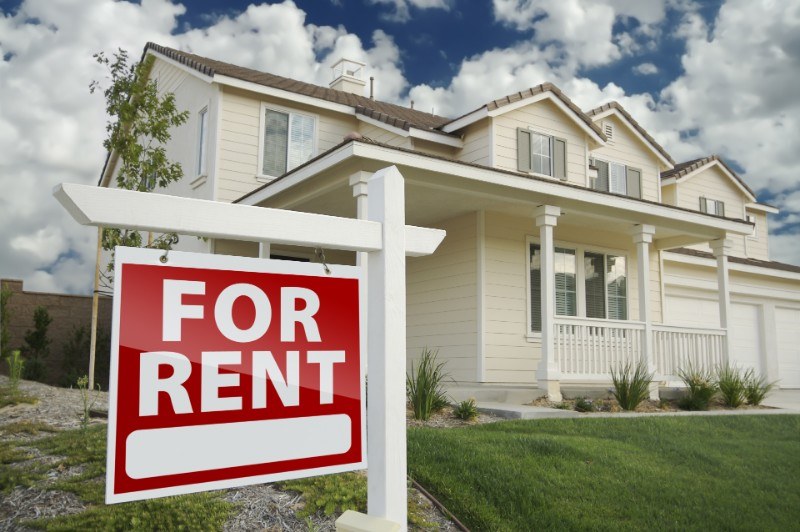The Recession in 2007, and the subsequent housing crash, left people understandably leery of property investment. However, home prices have been increasing steadily since then, and many are now wondering: should I be investing in real estate?
Investment properties can be a sound strategy for wealth accumulation - especially today - and there are several basic strategies that you can follow.
Buying & Renting
Buying a property and renting it out can allow you to effectively pay for your mortgage - and possibly make additional money through rental income. Renting out your property can also give you passive income, allowing you to spend your time elsewhere while still accruing capital. Buying and renting is an easy way to get into real estate investing. What’s important to know?
The Two Percent Rule: Is it True?
The two percent rule in real estate refers to what percentage of your home’s total cost you should be asking for in rent. In other words, for a property worth $300,000, you should be asking for at least $6,000 per month to make it worth your while.
The reality, though, is that the 2% rule is often impossible to achieve in metro real estate markets. It can be a good rule of thumb for understanding what you would need to charge in order to be cash-flow positive very quickly: however, the average rental cost in a city like Philadelphia is $1,660 - while the average home costs $203,000. Charging $4,000 for the average home rental, in other words, will be out of line with the local rental market.
In most markets, anywhere from .8% to 1.3% is more realistic. To figure out how much you can charge in rent, it’s a good idea to use Facebook, Craigslist, Apartment.com, etc. to see what other landlords in the area are charging. If your listing isn’t competitive, you’ll have trouble finding stable tenants. Pay attention to:
- Lot size
- Number of bedrooms
- Number of bathrooms
- Included amenities
- Year built
When comparing other rental properties to your own.
Capital Gains Tax
If you’re not going to be living in your investment property, Capital gains tax on real estate investment property will apply (If you live there for at least 2 years, you can minimize - or even eliminate - your capital gains tax responsibility).
If you hold onto property for less than a year, you’ll essentially pay the same in taxes as your ordinary income is taxed. If you hold the property for at least a year, it’s considered a long-term capital gain. These gains are taxed at a lower rate: 0%, 15%, or 20% depending on your income and filing status.
Price Appreciation
Price appreciation is another way you can build wealth through real estate. In many cities across the U.S., home prices have been appreciating quickly over the past five years. Philadelphia, for example, has seen a 14.2% increase in average home value year-over-year - a home worth $150,000 in 2015 is now worth about $245,000. Because the U.S. housing stock has dropped to historic lows - maintaining intense competition among buyers - it’s likely that this trend will continue for the foreseeable future.
Price appreciation, though, must be balanced against the rate of inflation (about 1.4% per year), and of course, homeowners lose money every year through taxes, upkeep and other expenses. This is why homeowners typically opt to either use their investment property as a residence, rent out a room, or rent out the entire property.
How to Find Investment Property for Sale
Working with an experienced Realtor is the best way to find investment properties. They can direct you away from homes that are likely to have expensive problems in the future - and direct you towards homes that are likely to see quick appreciation in upcoming years, based on their experience and knowledge of the local area.
Our guide to house flipping has more suggestions for how you can find properties, especially properties that might need a bit of work before they can be occupied.
What to Look Out For
What factors are important for an area (and therefore property) experiencing price appreciation?
- Growth: if the neighborhood is experiencing influx of new, young families and lots of building, the price of housing in the area will typically increase.
- Local schools: access to schools, and school quality, remain a driving force of real estate appreciation
- Walkability: areas with easy access to local shops, restaurants, and amenities are increasingly popular. This can lead to predictable price appreciation.
- Nature: University of Washington research indicates that homes adjacent to nature parks and open spaces hold an 8%-20% higher value than comparable properties.
- Commercial properties: A Starbucks on every corner may work for your investment. According to Homelight, “Research shows homes close to Whole Foods, Trader Joes, and Starbucks appreciate faster than other homes.”
And of course, many other factors go into price appreciation - or lack thereof- such as population trends, the economy, and mortgage rates, which can be more difficult to predict.
REITs
REITs, or Real Estate Investment Trusts, are another way to get involved with real estate investment. Similarly to the stock market, you’re basically investing in a company’s portfolio of real estate investments. They are seen as a good investment category because they deliver high returns and long-term capital appreciation.
They also are distinct from other asset classes, and diversity of investment can help reduce overall risk in one’s financial portfolio. You can buy shares in a REIT through the public stock exchange; you can also invest in private REITs.
What to look for in a REIT:
- Growth industries. Residential real estate is a hot market, but malls - and their associated real estate - have been largely on the decline.
- A Growth in earnings. Higher occupancy rates and increasing rents mean more revenue for investors.
- Good credit rating. A REIT that has been overextending itself with debt is more likely to have a poor credit rating.


